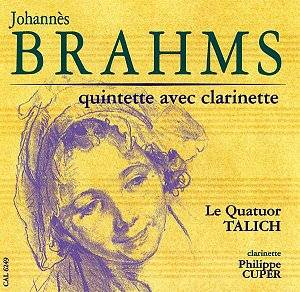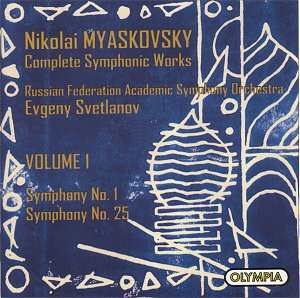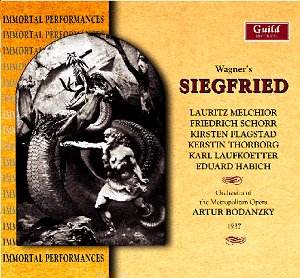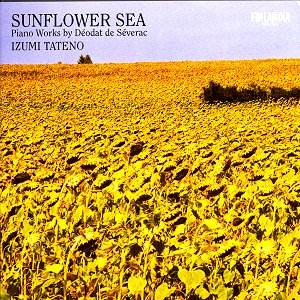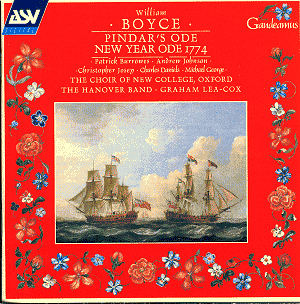 Composer: William Boyce
Composer: William Boyce
Works: Pindar’s Ode, New Year Ode (1774)
Performers: Patrick Burrowes (boy soprano), Andrew Johnson (boy soprano), Christopher Josey (high tenor), Charles Daniels (tenor), Michael George (bass-baritone), Choir of New College Oxford, Hanover Band, Graham Lea-Cox (conductor)
Recording: ASV CD GAU 232
Label: ASV
William Boyce, a prominent figure of the English Baroque, is often overshadowed by his contemporaries, yet his works reveal a composer of considerable depth and artistry. The odes presented in this recording, particularly Pindar’s Ode, showcase Boyce’s adeptness at marrying text and music, drawing on the classical tradition while infusing his compositions with a distinctive English sensibility. This recording captures the Dublin version of Pindar’s Ode, a revision that enhances the color and character of the score, allowing listeners to appreciate Boyce’s dramatic impulses and melodic gifts.
Graham Lea-Cox leads the Hanover Band with a clear vision, striving to align vocal timbres with the period instruments. This choice, particularly the inclusion of boy sopranos and a high tenor, introduces a refreshing palette to the performance but not without its challenges. The voices often struggle with technical demands, particularly in executing trills and maintaining intonation, which can at times detract from the overall coherence of the ensemble. However, the orchestra’s contributions are consistently commendable; the strings, in particular, offer a vibrant attack and dynamic layering that enhances the emotional impact of the vocal lines. Notably, Charles Daniels’ performance in “In Fires of Hell” exemplifies the synergy between voice and orchestra, where the vivid imagery of the text is matched by the orchestra’s deft musical depiction.
In the New Year Ode, Boyce’s ability to condense dramatic ideas into a cohesive whole is evident. The work’s two-movement overture adopts the contemporary “Symphony Style,” and the transitions between recitative and arioso are handled with finesse. Michael George’s interpretation shines here, especially in the aria “And all that Pomp,” where his nuanced delivery captures the essence of Boyce’s melodic invention. Christopher Josey’s performance in “Say, why do millions bleed at thy command” is likewise commendable, revealing a blend of strength and sensitivity that complements the orchestration beautifully. The concluding chorus, delivered by the New College choir, erupts with a vigorous energy that underscores the celebratory nature of the piece.
While this recording may not reach the emotional heights of the Hanover Band’s earlier David’s Lamentation, it nonetheless stands as a significant testament to Boyce’s stature within the 18th-century musical canon. The recording quality is robust, allowing for clarity in both vocal and instrumental lines, although there are moments where the vocal difficulties can obscure the text’s emotional weight. The engineering captures the ensemble’s intricacies, ensuring that the listener is fully engaged with the unfolding drama.
Boyce’s ability to blend text and melody with dramatic intent is compellingly presented in this recording, affirming his place as a vital composer of the English Baroque. The performances, while uneven at times, contribute to a rich exploration of Boyce’s oeuvre, revealing layers of artistry that deserve greater recognition. The disc ultimately serves as an engaging entry point for those interested in the nuanced world of 18th-century music, while also providing insights into a composer whose contributions merit rediscovery.
